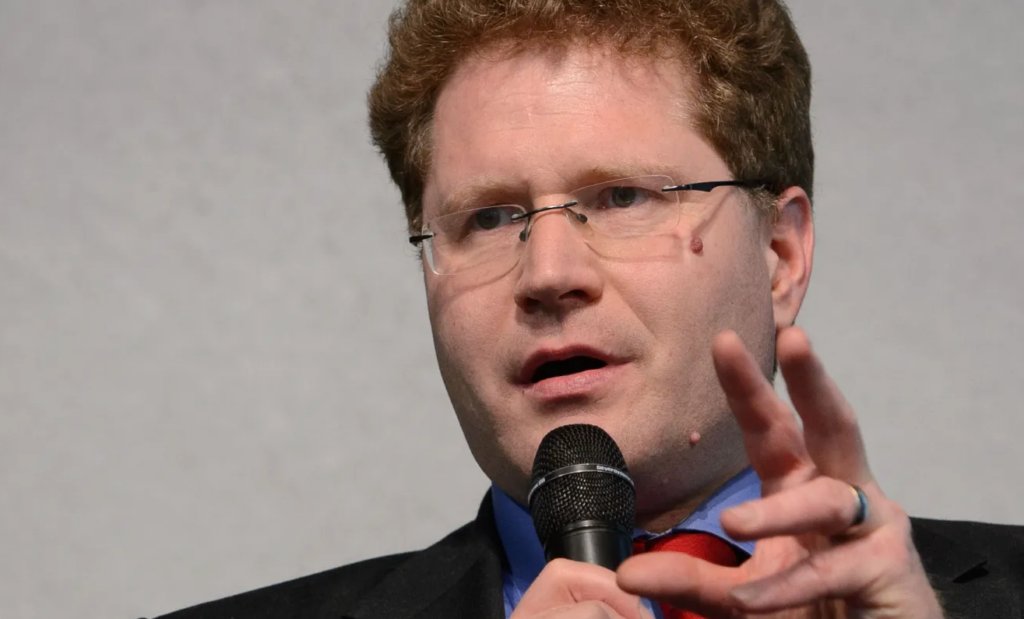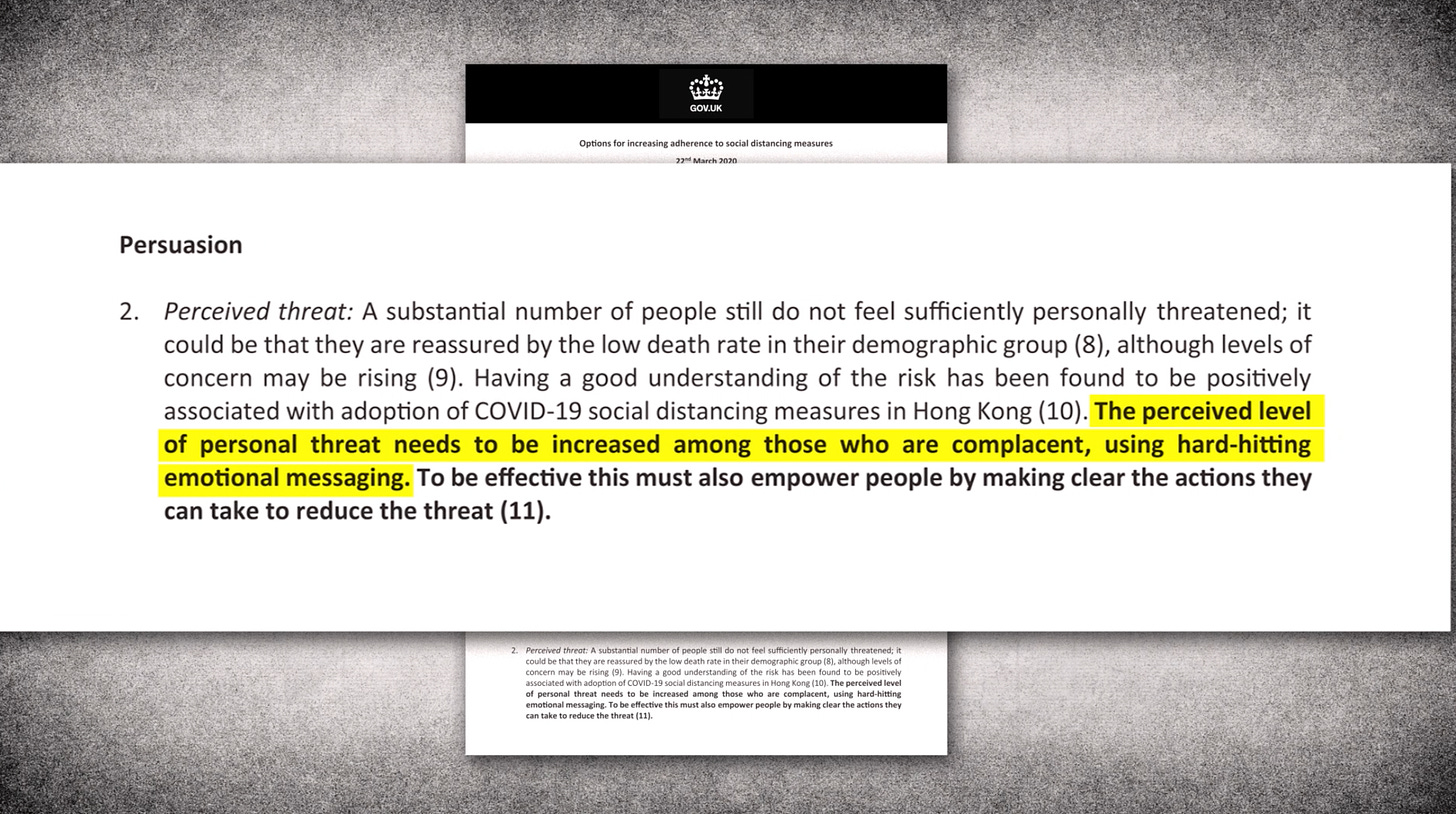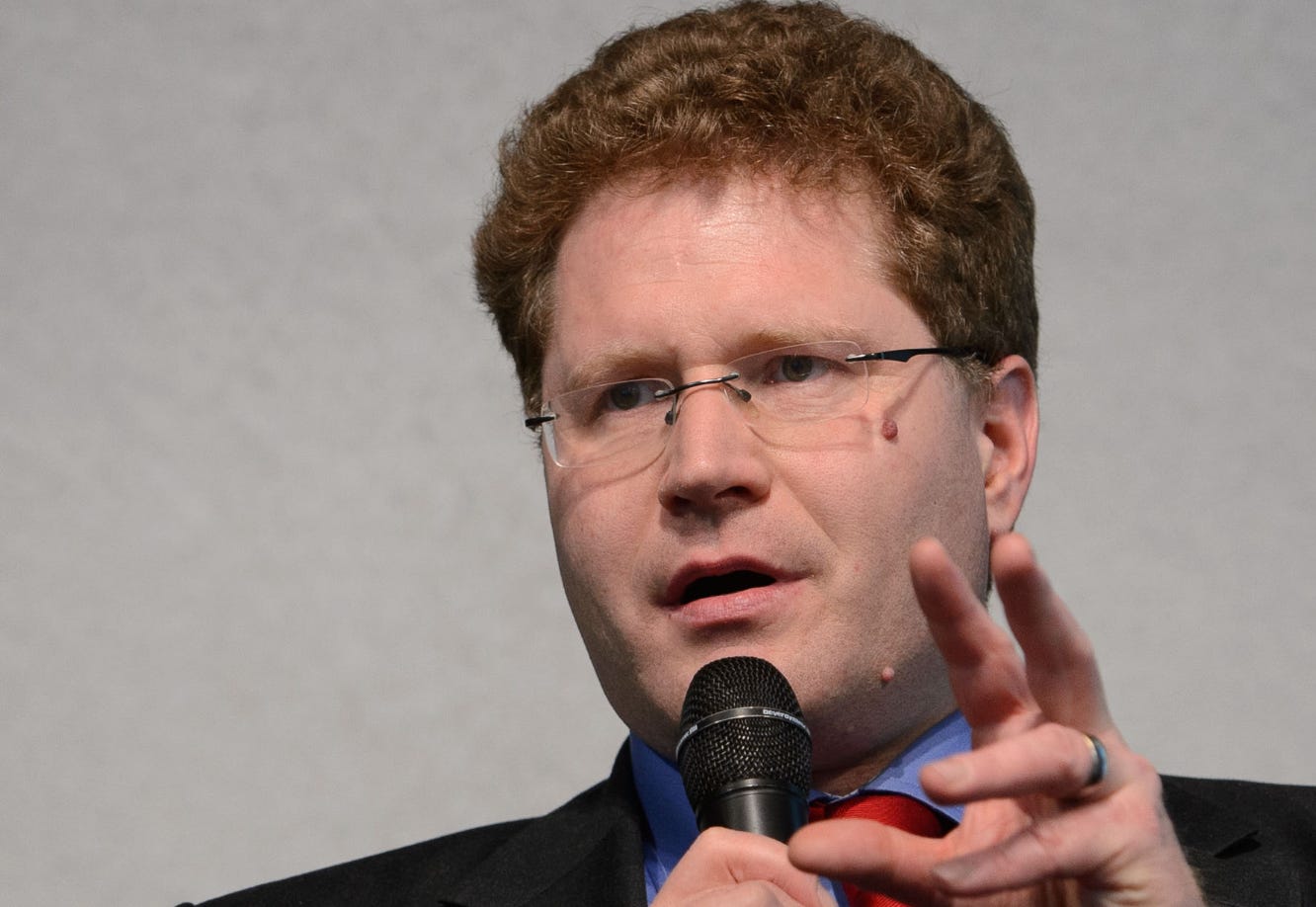Government Advisers Caught Falsely Claiming Never to Have Supported Pandemic Fear Messaging

In March 2023, the BMJ published an article by professors Stephen Reicher, John Drury, Susan Michie and Robert West entitled ‘The U.K. Government’s attempt to frighten people into Covid protective behaviours was at odds with its scientific advice‘. You will note in the declaration of competing interests that they were all Government scientific advisors. All four sat on SPI-B (the U.K. Government’s Scientific Pandemic Insights Group on Behaviours) and two were also part of ‘Indie SAGE’.
In essence, the article claims that the idea of using fear to induce compliance with lockdown and NPIs did not come from the Government conspiring with behavioural scientists in SPI-B, but rather from ignoring them. Not only that, they say fear is an ineffective way to persuade people engage in ‘health protective behaviours’.
This article stuck in the craw after the extensive research I had undertaken for my book A State of Fear: How the U.K. Government weaponised fear during the COVID-19 pandemic. I don’t deny the Government’s own agency in using fear but to claim it was at odds with official scientific advice is patently untrue.
The article opens with the shocking leaked Government WhatsApp messages in which the former Secretary of State for Health and Social Care Matt Hancock openly proposed using fear — “we must frighten the pants off everyone with the new strain” — and Cabinet Secretary Simon Case agreed that “the fear/guilt factor vital”, offering lurid insight into their base and disrespectful attitude towards the British people.

But was it right for Reicher et al. to claim the Government acted against its own scientific advice? Or did these embarrassing leaks happen to offer an excellent opportunity for SPI-B members to distance themselves from the egregious use of fear?
The professors’ article then went on to use a hard-hitting article which appeared in the Telegraph in May 2021 to further back up the idea that it was the Government which aimed to control the public through fear. Well, I have a little insight into that article, since every single quote came from the anonymous interviews I conducted with government advisers, including some of their colleagues on SPI-B. One told me that “the way we have used fear is dystopian”. Another crowed that “without a vaccine, psychology is your main weapon… Psychology has had a really good epidemic, actually”. And yet another adviser told me that he was “stunned by the weaponisation of behavioural psychology”. These were Reicher et al.’s contemporaries and colleagues — not the Government — breaking cover to express their discomfort and concerns.
If my first concern with this article was the flagrant denial of the advice contained within the infamous SPI-B document ‘Options for increasing adherence to social distancing measures‘ published on March 22nd 2020 to increase the level of personal threat felt by the complacent, my second significant concern was the astonishing idea that the authors could “leave aside the ethical and political dimensions of this argument”. How can psychologists leave aside the ethical dimensions of using fear, whether for an article or advising Government and drafting the plans in the first place?
Professor Ellen Townsend and I decided to write a response to challenge these claims. We could not write a rapid response in the BMJ since we would have been limited to 600 words. Hence, 13 months later, a more substantive peer-reviewed article — a form of ‘response’ — has been published in Clinical Psychology and Psychotherapy with co-authors Professors Gemma Ahearne, Robert Dingwall, Lucy Easthope and Michael Riordan, ‘The Three Rs of Fear Messaging in a Global Pandemic: Recommendations, Ramifications and Remediation‘.
In our paper we lay out the evidence that SPI-B did support the use of fear messaging, contrary to existing psychological and disaster planning literature. Furthermore, it was never possible to simply target the ‘complacent’, who were not defined and were in fact doing a reasonable job of assessing their own risk. Consequently, the entire population was subject to fear messaging, with all of its damaging consequences.
SPI-B did recommend the use of fear. Not only that, even if it had not recommended fear, note that it did not criticise the Government’s campaign of fear in any of its members’ frequent turns in the media spotlight. The committee lay the ethical dimensions to one side. Psychologists actively proposing the use of fear should not leave aside ethics. Indeed, they are bound by ethical codes of conduct. If they disagreed with such fear messaging they had many opportunities — as well as arguably moral and professional obligations — to object on public record to the mass evocation of fear and the ensuing harms. This is, in fact, why some SPI-B advisers broke cover to speak with me for my book research.
On January 6th 2021, retired NHS psychologist Dr. Gary Sidley wrote to the British Psychological Society (BPS) about the unethical use of strategies to gain mass compliance, including fear, scapegoating and covert nudging.
One of the ‘Statement of Values’ in the BPS Code of Ethics & Conduct (2018) (12), stipulates:
3.1 Psychologists value the dignity and worth of all persons, with sensitivity to the dynamics of perceived authority or influence over persons and peoples and with particular regard to people’s rights.
In applying these values, Psychologists should consider: … consent … self-determination.
3.3 Psychologists value their responsibilities … to the general public … including the avoidance of harm and the prevention of misuse or abuse of their contribution to society.
The use of fear causes harms. Even if lives are potentially saved by calibrating the risk of death where people have underestimated risk, there are harms to mental and physical health by amplifying fear. Furthermore, the British public had an exaggerated understanding of the risks. One survey in July 2020 found that the British public thought 6-7% of the population had died from coronavirus, which was around 100 times the actual death rate.
So, given the negative ramifications, issues with effectiveness and ethical concerns, why did the SPI-B advisors recommend raising the perceived threat among the ‘complacent’? This is not addressed in the article by Reicher et al.
Among many reasons, realistically, one could be that the fears felt by psychologists themselves advising the Government affected the quality of professional advice. One SPI-B advisor told me under cover of anonymity for A State of Fear that “psychologists tend to be more on the neurotic end of the spectrum”.
Sometimes this was all too obvious. Implying that Boris Johnson should delay the road map, SPI-B’s Professor Stephen Reicher tweeted in the run-up to the original Freedom Day of June 21st:
What sort of sign does he want? The Thames turned to blood? A plague of frogs? Writing on the wall that spells out ‘we are all doomed if you don’t stop your dithering’? But seriously, what sort of sign does he want?
No Biblical scale event followed Freedom Day.
Also in June 2021, Professor Susan Michie argued on Channel 5 that face coverings and social distancing measures should continue “forever”, comparing the behaviours to routine ones such as wearing seat belts and picking up dog poo. Face coverings make little to no difference to the spread of respiratory flu-like illnesses and COVID-19 according to this Cochrane review. The idea that we might wear them forever despite the many harms, but for little to no benefit is deranged.
Later in December 2021, amidst calls that another lockdown was needed, Professor Robert West, tweeted:
It is now a near certainty that the U.K. will be seeing a hospitalisation rate that massively exceeds the capacity of the NHS. Many thousands of people have been condemned to death by the Conservative Government.
In fact, the U.K. never came close to SAGE’s projected deaths of 600 to 6,000 a day, or exceeding NHS capacity.
These professors should not be singled out for experiencing fear during the pandemic, nor for performing something of a volte face about the strategies deployed to combat COVID-19. Incidences such as these are now coming hard and fast. Just this week, in a notably mind-blowing example of amnesia, presenter Susanne Reid confessed on ITV’s Good Morning Britain, “Looking back I think we failed our children during the pandemic”. (This was in response to the news that school closures during COVID-19 mean that GCSE results will be poorer in England well into the 2030s. The impact on education and as well as mental health was predicted by experts at the time.) Yet at the time, GMB asked viewers a number of times whether schools should lock down, posing polls on Twitter, and interviewing Zero Covid fanatics who pushed this totally destructive idea. (Remember we don’t have Zero Covid now, and we never will. If they had had their way, we’d still be locked down, masked up, and schools closed.)
Over the coming years, expect to hear many more people say they never supported Zero Covid, lockdowns, the Rule of Six, school closures, tiers, cancelling Christmas or face coverings.
During the period of the COVID-19 Inquiry, no one should be immune from self-reflection. Those involved in advising Government should consider their ethics, biases and cognitive dissonance.
This article was first published on Laura’s Substack page the Free Mind. Subscribe here.
BBC Removes Laura Kuenssberg Episode After Complaint Over Chris Packham’s Comments About the Daily Sceptic
By Toby Young

The BBC has removed the most recent episode of Sunday With Laura Kuenssberg from iPlayer following my complaint to the BBC about Chris Packham’s false and defamatory claim that the Daily Sceptic is “put together by a bunch of professionals with close affiliations to the fossil fuel industry”. It has also deleted the tweet posted by BBC Politics containing a clip in which he said this which was retweeted by Kuenssberg. The Telegraph has more.
In a statement, the BBC said: “We received complaints from people unhappy Laura didn’t challenge a comment made by panel member Chris Packham regarding the Daily Sceptic.
“During a discussion with the panel about various issues including climate change, broadcaster and conservationist Chris Packham claimed that the Daily Sceptic, whose editor-in-chief is Toby Young, is ‘basically put together by a bunch of professionals with close affiliations to the fossil fuel industry’.
“We acknowledge we would ideally have asked him to present his evidence on this, but in a fast-moving live programme it’s not always possible to pick up on every point made by our guests.
“We’ve removed any posts on X with this part of the discussion.”
The BBC has also removed the programme from iPlayer.
Packham had been discussing climate change and arguing that recent floods in Dubai, plus high temperatures in the global south and wildfires, were a result of carbon emissions.
Writing about the discussion in the Spectator, Young said: “And to think the BBC launched a multi-million-pound department last year [BBC Verify] to ‘address the growing threat of disinformation’.”
Worth reading in full.
Thank you to all those people who complained to the BBC about this outrageous slur. Let’s hope next time the ubiquitous Chris Packham falsely claims that a climate contrarian is funded by Big Oil, he’s challenged by a BBC presenter.
Overdiagnosis of Autism
By Dr Carl Heneghan and Dr Tom Jefferson

Last week, we introduced the concept of overdiagnosis in prostate cancer screening. It didn’t take long for the issue to rear its head again as the Telegraph reported ‘Why autism and ADHD self-diagnosis may be inaccurate‘, and ‘ADHD and autism referrals are up fivefold since the pandemic‘.
These reports are based on a recent Nuffield Trust report, which “shows that there might be as many as 1.2 million autistic people and 2.2 million people with ADHD in England”. Furthermore, in December 2023, there were 172,022 patients with suspected autism waiting to be seen – the highest number ever reported and five times higher than the 32,220 waiting in 2019.
According to the Telegraph, experts blame “diagnostic creep”. An NHS task force is investigating the problem. “NHS England has also begun important work into investigating challenges in ADHD service provision and last month launched a cross sector task force alongside Government, to help provide a joined-up approach for the growing numbers of people coming forward for support.”
At the TTE office, we decided to try out the AQ test, developed by Cambridge researchers in 2001 and popularised by Wired magazine. Here’s a link to the test.
Here at TTE, we hit near the threshold because we scored highly on questions such as “Are you fascinated by numbers?” People also often tell us that we’d keep going on and on about the same thing – take excess deaths as one example. And we frequently find it difficult to work out people’s intentions – we have no idea what the WHO is up to in its latest treaty. The difference between answering definitely or slightly agreeing is enough to tip you over the edge.
Diagnostic creep is a phenomenon where the diagnostic threshold is expanded to include ambiguous or very mild symptoms. Overselling promotes adult autism by moving the line that separates normal from abnormal – people with milder and milder symptoms get diagnosed. While the symptoms may be intense or debilitating for a minority, they are mild or fleeting for most.
People on the waiting list report they want a formal diagnosis of ADHD or autism; they just want to know. However, reports say they are not looking for medical treatment, be it prescriptions or talking therapies; they’re looking for “validation and recognition”.
But the consequence of diagnostic creep is disease-mongering. Widening the diagnostic boundaries allows aggressive public promotion to expand the markets for treatment. As an example, ADHD prescribing has risen by 50% over the last five years.
With 3.4 million potential patients, that’s a lot of drugs to sell to people who may never benefit and often will be harmed. And if you think healthcare can meet such demand, then think again.
Dr. Carl Heneghan is the Oxford Professor of Evidence Based Medicine and Dr. Tom Jefferson is an epidemiologist based in Rome who works with Professor Heneghan on the Cochrane Collaboration. This article was first published on their Substack, Trust The Evidence, which you can subscribe to here.
New Document Release Reveals Greens Engaging in Fraud to Deceive Ministers and Push German Nuclear Phase-Out
By Eugyppius

All of our countries are crazy in various ways, but when it comes to energy policy Germany is an undisputed champion of crazy.
In 2011, a tsunami caused the Fukushima nuclear disaster. If you check a map, you’ll notice that Fukushima is in a country called Japan, which it turns out is a different country from Germany. The Fukushima disaster had zero to do with the Federal Republic, but then-Chancellor Angela Merkel felt the need to solve the problem of Fukushima by phasing out nuclear power in Germany, even though tsunamis and earthquakes are not a problem in Germany, because Germany is a country in Central Europe and not an island nation in Asia.
That is crazy enough, but it gets much crazier. Months before announcing the nuclear phase-out, Merkel’s Government had passed energy transition legislation to secure Germany’s path towards a zero-emissions future. We resolved to ditch our most significant source of emissions-free power, in other words, just months after resolving an energy transition to emissions-free power. At this point you would be justified in wondering if Germany suffers from some kind of shamanistic cultural phobia of electricity in general, that is how crazy this is. These insane choices had the near-term consequence of increasing our dependence on Russian natural gas. Otherwise, they ensured that power generation in Germany would be vastly more expensive than necessary and also vastly more carbon intensive than necessary.
Now, crazy demands explanations, and observers have proposed various theories for the German climate nuclear crazy. Two of them deserve mention here:
- The 1968 generation in Germany suffered from unusual radicalism, sharpened by moral anxiety over National Socialism, and resolved to outcompete all others in the project of self-abnegating virtue. Our culture developed a deranged anti-nuclear movement that in a fit of typical German thoroughness also came to embrace opposition to nuclear power. The Chernobyl disaster radicalised the pink-haired anti-nuclearists still further, and these cretins grew up to become news anchors, school teachers and book authors, effectively indoctrinating the next generation according to their parareligious delusions.
- German politicians after the Cold War – especially Gerhard Schröder and Angela Merkel – harboured a subtle and not entirely unreasonable desire to strengthen ties with resource-rich Russia. They decided that the anti-nuclearists and the Green Party could be instrumentalised towards this end. The energy transition and the nuclear phase-out increased our dependence on Russian gas, and this was a feature more than it was a bug.
These are mutually supporting theories, but I don’t think either of them can fully account for the bizarre phenomenon before us. Germany energy crazy is a very deep problem and it will keep historians busy for many generations.
In 2022, Russia invaded Ukraine, and Germany under Merkel’s successor, Chancellor Olaf Scholz, decided along with the rest of the liberal West that Russia was bad, bad, bad and that evil Putin had to be punished with self-immolating sanctions, sanctions, sanctions. This new spasm of high-minded moralising further attenuated our energy situation, ushering in an entirely self-made energy crisis. The Greens, now in government, were determined to proceed with the last stages of the nuclear phase-out, even with our natural gas supplies in doubt. Only when they saw themselves staring into the abyss of political doom did they grudgingly agree to give our last nuclear plants a three-and-a-half month lease on life. We Germans and our energy policy had out-crazied everyone else, we had made ourselves the laughing stock of the entire world, that is how crazy we were.
The Greens fought ruthless bureaucratic battles to shut off the last remaining nuclear power plants, and in the years since they have fought ruthless legal battles to keep the records of all this under seal lest their idiocies ever see the light of day. In open court, they argued that these documents must remain secret, because the German Sonderweg in all things nuclear “has to be defended in the future, both domestically and to our international and European partners” and “if the documents were to be disclosed, the negotiating partners of the Federal Government could counter our arguments”. Yes, you read that right: lawyers for the German Ministry of Economic Affairs stood before a judge last year and begged him not to release internal records relating to the German nuclear phase-out because their contents were so discrediting that they would make the policy impossible to justify at home and defend abroad.
Our Government, then, is not only crazy. Its members also know that they’re crazy, they love being crazy, they wish to persist in their crazy and they hope only that nobody else finds out about their crazy. It is like a middle-aged man with a crippling addiction to foot porn worried that his wife might stumble across his browsing history, except transmogrified into the form of a major European industrial power.
Happily, journalists for the excellent news magazine Cicero won their court battle and succeeded in forcing the release of the deeply embarrassing nuclear memos. Today Daniel Gräber has published his long-awaited analysis of these records, and what it reveals is really and truly abysmal. These documents show high civil servants literally falsifying expert reports. They show these same officials withholding information from their boss, Economics Minister Robert Habeck, lest he inconveniently arrive at the right conclusions. And they show an oblivious and wilfully deceived Habeck, still dreaming of becoming Chancellor one day and terrified of alienating the rabid antinuclearists of his own party.
Before we get to the highlights, I must introduce you to our cast of characters. They are a colourful bunch indeed. At the pinnacle of this tragicomedy is of course Habeck himself, our valiant Minister of Economic Affairs. He hails from the technocratic, so-called ‘realist’ wing of the Green Party, which means that he is Hard-Headed Very Serious Visionary and not just another crazy Leftist hippie.

Habeck’s even stupider colleague, Annalena Baerbock, ended up being the Green Chancellor candidate in the 2021 elections because feminism. Frustrated ambitions can ruin the best of men, to say nothing of petty pseudointellectual children’s book authors.
Next, you must meet Habeck’s powerful State Secretary, Patrick Graichen. This odious man, who was forced to resign May 2023 in the face of a nepotism scandal, was Habeck’s energy tsar during the 2022 crisis. He came to the Ministry following years as a lobbyist at Agora Energiewende, a think-tank responsible for devising and promoting much of the present German renewables lunacy.
Third in line is Stefan Tidow, who looks like what would happen if you blended a shark with an accountant. He also has a background at Agora, where he worked for a time under his friend Graichen. When the Scholz Government came to power, Tidow became State Secretary in the Ministry for the Environment, responsible for nuclear supervision.
Finally, there is Tidow’s subordinate, an insane lawyer named Gerrit Niehaus. Like his boss Tidow, Niehaus appears to truly loathe nuclear power for unfathomable reasons, and that is very unfortunate, because the Green Environmental Minister placed him in charge of “Department S”, the division responsible for nuclear regulation. I cannot find a good picture of Niehaus, so for the purposes of this post I invite you to imagine an unpleasant male visage of your choosing.
As soon as Russia invaded Ukraine on February 24th 2022, Habeck and his Ministry knew that their plans to abolish nuclear power were in doubt. Habeck initially suggested he was open to delaying the phase-out, and his subordinates commissioned an assessment from internal experts on whether extending the lifetime of our last nuclear plants would enhance energy security. These politically neutral civil servants produced a four-page memo explaining in detail all the reasons that shutting down power plants in the face of a looming energy crisis might be a bad idea, and why it might be wise to keep them running through the winter. All the arguments that would emerge in the autumn as the energy crisis deepened were thus, as Gräber explains, “on the table right from the start… well-prepared by civil-servant experts whose job it is tend to the welfare of the entire country rather than of any specific party”.
Fascinatingly, Habeck claims that he never saw the assessment. His energy tsar Graichen, intent on phasing out nuclear power by the end of the year even if it meant freezing to death in the dark, seems to have sent it directly to the waste bin – condemning his boss to say stupid and wrong things on television for months to come.
Meanwhile, Graichen’s counterpart in the Ministry of the Environment, our accountant-shark Tidow, was working just as hard to subvert inconvenient reports on his end. On March 1st 2022, his Ministry commissioned an assessment on “scenarios compatible with nuclear safety”, should the last nuclear plants be allowed to run beyond December 31st. The authors of the report – including two outside consultants – affirmed that safety concerns did not stand in the way of extending plant lifetime “for several years” beyond the scheduled phase-out date.
Tidow’s subordinate in “Department S”, Gerrit Niehaus, found this document to be highly inconvenient, and he immediately began rewriting it. Amusingly, he replaced every occurrence of the word for “nuclear power” (Kernkraft) with the slightly more ominous-sounding “atomic power” (Atomkraft). “Then,” Gräber writes, “he set about turning the core message of the memo into its opposite.” It took him two days to do this. On March 3rd the new, falsified memo was ready, now scrubbed of the original authors’ names and sourced only to “Department S”. It argued that extending the life of Germany’s final nuclear plants by even a few months represented too great a risk to contemplate. And once again, Habeck was kept in the dark. Niehaus’s boss, Tidow, withheld the original assessment and forwarded only Niehaus’s doctored version to Graichen at the Economics Ministry. With it came a note: “Don’t formally deliver, only for you.”
There ensued an astounding comedy of the absurd. Apparently doubting that Habeck would have the appetite to read even the doctored memo, Graichen drew up an entirely new document, entitled ‘An examination of the continued operation of nuclear power plants in view of the war in Ukraine’. Of course, this was yet another bureaucratic invention that recommended against extending the life of the last German nuclear plants, and this on an even more egregiously pseudointellectual basis. Graichen promptly forwarded this fraudulent derivation of a falsified memo of a genuine assessment to Habeck – who of course really, really loved it.
It was a Friday evening, but Habeck’s intellectual orgasm was so intense that he spent the evening and much of the next day rewriting Graichen’s farce into a long question-and-answer dialogue. Having finished this labour of love, our proud schoolboy happily forwarded it to Graichen and Tidow, explaining that he had reworked Graichen’s “marvellous paper” into an FAQ, “because I believe this has to be NARRATED. If you want to read about this, so will everyone else”. Habeck suggested that they send this fourth narrative derivation of Graichen’s fraudulent reconception of Niehaus’s falsified memo of a genuine assessment to the nuclear plant operators the next day, at noon.
Our bureaucratic wizards now had a very delicate problem. As Niehaus explained, Graichen’s memo (derivation number three) was a complete disaster – “grossly wrong in legal terms” and mistaken in other respects as well. Habeck had unknowingly taken all of this ignorance into his “NARRATIVE” and was now demanding they use this monument of ideological idiocy to tell the actual experts – the nuclear plant operators – how things had to be. There followed, as Gräber writes, “a lively email exchange in which Habeck’s people wondered what they should do about the story written by their boss, which was based on false facts”. They finally posted a “radically shortened” and “heavily rewritten” version to the Ministry website on March 8th.
In the end, the Green bureaucrats lost the battle but they won the war. All the fake, invented reasons why the nuclear plants could not be left running into the spring melted away as the energy crisis deepened and the Government found themselves toeing the brink of political annihilation. The plants did go offline, however, if a little later than Graichen, Tidow and Niehaus had hoped. The Greens declared victory and Habeck dreams of his future Chancellorship to this day. What remained in the archives of Habeck’s ministry were the awkward leavings of their radicalism, ignorance and will to deceive, which in this case at least they failed to keep from us.
This article originally appeared on Eugyppius’s Substack newsletter. You can subscribe here.
Petrol Car Sale Restrictions Are “Terrible for the U.K.”, Warns Vauxhall Maker
By Will Jones

The Net Zero crackdown on combustion engines could force the maker of Vauxhall to scale back its presence in Britain, its boss has warned.
Carlos Tavares, Chief Executive of Stellantis, said that a law to limit petrol car sales was “terrible for the U.K.” and would force manufacturers to sell vehicles at a loss.
If Ministers did not make urgent changes to the rules, he suggested Stellantis could be required to slash the number of cars it sells in Britain – and refused to rule out halting sales of some models altogether.
A source close to the company said the more likely option was that sales could be restricted or that it would be forced to put up prices to compensate.
Asked whether the maker of Vauxhall and Citroën cars could stop selling models in the U.K., he replied: “I’m not going to sell cars at a loss.”
Mr. Tavares blamed sagging demand for electric cars, which were “crashing in the world of reality” due to high prices, poor charging infrastructure and range anxiety among consumers.
The “natural” market share of electric cars was currently just half of what car companies are required to sell under regulations brought into force this year, he added.
Mr. Tavares warned that the Government’s zero emissions vehicle (ZEV) mandate would force carmakers to slash prices to unprofitable levels in order to meet the targets and avoid punitive fines.
Worth reading in full.
Small Businesses Are Drowning in EDI Red Tape

I remember sitting in my father in law’s office. I was a spotty 30 year-old executive so this would have been around 2001. We were discussing HR, the bane of his life. He ran an oil and gas Engineering Recruitment Business and was bemoaning that he increasingly had to work with HR teams rather than the managers he used to supply to and there was a serious gap in the technical and market knowledge of the HR recruiters who typically had never even seen an oil rig or well, let alone understood how they worked. This was one of the periods in the industry when corporate procurement teams decide that staffing can be commoditised so they write large contracts with the likes of Capita and, well, it doesn’t go well. Eventually they realise this doesn’t work before going back to basics only for the same to creep in over the next five to 10 years. Over the 30 or so years of my career I have seen this cycle rinse and repeat again and again.
At the time, my father in law pointed to a shelf on the wall of his office. There, in all its glory, was a dust covered series of bound volumes of papers from Croners. This was the HR bible for small businesses. If you needed any help or advice, you’d simply reach for Croners and the answer would be there. Every month, Croners would post out update pages and you would swap out the old ones for the new.
My father in law only opened Croners when he was hiring someone or managing sick leave. Mostly they remained closed, only ever opened monthly when his PA would swap out the old for the updates.
Then, around 2010, when the Equality Act came in we started to see an increase in the amount of time, but also the amount of expertise required to navigate HR. Croner’s volumes were no longer sufficient. A new breed of service provider emerged – the freelance HR Consultant, offering services to small businesses. Since then the burden has continued to increase. The paradox here being that the laws and administrative functions required to comply with them have pretty much all been designed for larger employers with the in-house specialists to manage. The paradox being that the majority of British workers work in Small to Medium Enterprises (SMEs) which are under 250 employees and unlikely to have such expertise in house.
Now none of this is necessarily unusual. Anyone running a small business knows that the lobbying power of big business has seen a huge increase in the burden of bureaucracy; this was a particular feature of the EU. It is in the interest of big business to increase the burden of statutory administration, knowing that smaller competitors cannot afford to implement it. Sadly, Parliament has proven remiss in protecting the small business sector; those entrusted to represent us have been less than on top of this. The culmination being the open favouring of big businesses over small during the lockdowns and the largest transfer of wealth in history.
So back to HR in small businesses. We know that the introduction of Equality (or is it Equity?) Diversity and Inclusion (EDI) policies and ESG policies driven by activist organisations has been disastrous for the British economy. The figures are in, supported by the Dynata survey data from the Free Speech Union and the Department For Business and Trade report in March 2024.
However, employers continue to push these policies and demand compliance from their workforce. As I highlighted in my article last week, this is having serious real-world consequences to the tune of several hundred thousand losing their jobs for essentially having the ‘wrong opinions’. ESG initiatives have EDI baked into them – if a large business wants funding from somewhere like Blackrock, then it needs to agree to implement ESG as a condition of the funding. This inevitably means driving EDI and other ‘initiatives’ down the supply chain. Supply paper clips to a FTSE250? Well you now need to show you have a raft of policies in your business, no matter how small, including EDI and the associated training. It’s the same in the public sector. It is all very well for Kemi Badenoch to highlight the problems with this but NHS trusts and others in the public sector are pushing the same to their suppliers.
This is how EDI is pushed into small businesses. It’s usually done by buying ‘off the shelf’ training or bringing in an EDI consultancy, usually staffed by activists, which then quickly trains the staff in ideologies like Critical Race Theory and Radical Trans Allyship. As the Government report quoted above highlights, EDI is extremely complex and it is very easy, through lack of time or resources, to get it wrong and for it to backfire horribly on your business leading to the devastating number of sackings and other negative outcomes. 65% of British workers report that they have received ideologically skewed training in EDI despite most British workers working in SMEs.
How on earth are small businesses meant to navigate all this without time and resources? Furthermore, if they have inadvertently damaged their business by, with the best intentions, implementing EDI which has destroyed employee and colleague relationships, how can they fix this?
This is why I and my team have launched www.fairjob.co.uk, an accreditation and support service for small businesses which is there to help them navigate the minefields of EDI and other complex areas of HR. The service is aimed at small businesses and is priced to make it as affordable as possible.
So if the burden of HR, recalcitrant activist employees, constant political tension at work, distrust, intolerance and fear is undermining your business, get in touch with us. We can help. Subscriptions for the smallest businesses start at £190 + VAT per annum.
C.J. Strachan is the pseudonym of a concerned Scot who worked for 30 years as a Human Resources executive in some of the U.K.’s leading organisations. Subscribe to his Substack. He is a founder of Fair Job, an accreditation and support service for small businesses to help them navigate the minefields of EDI and HR.
News Round-Up
By Will Jones

- “BBC removes Laura Kuenssberg episode after Chris Packham comments cause complaint” – GB News reports on Toby’s complaint that the wildlife presenter had made “false and defamatory” allegations about him.
- “Tory MP defects to Labour in blow to Sunak” – Dr. Dan Poulter, a former Health Minister, has defected to Labour as he accuses the Tories of becoming a “nationalist party of the Right”. Surely some mistake?
- “Campaign Against Antisemitism cancels London march amid security concerns” – A counter event to the pro-Palestine demonstration today did not go ahead because of fears for participants’ safety, the Telegraph reports.
- “Met Police are so cowed by antisemites, they cover up the Holocaust” – Britain’s first public memorial to the six million Jewish victims of the Holocaust was covered up and guarded by Met Police officers to stop pro-Palestinian protesters targeting the monument, reports the Mail.
- “Moment pro-Gaza students harass Jacob Rees-Mogg hurling vicious abuse” – Pro-Palestine students and activists harassed Jacob Rees-Mogg and hurled foul-mouthed abuse at him after speaking at Cardiff University, the Mail reports.
- “My generation of student radicals fought for liberty. Today’s are a delusional cult” – The Telegraph‘s Janet Daley says she was “there when Berkeley erupted in outrage at restrictions on free speech. It was nothing like the protests today”.
- “The working-from-home illusion fades” – It is not more productive than being in an office, after all, says the Economist. You don’t say.
- “China’s spies and Covid lies” – Spectator TV this week features Great Barrington legends Jay Bhattacharya and Sunetra Gutpa talking about Covid propaganda.
- “Can anyone halt the mRNA juggernaut?” – David Craig is doubtful on TCW.
- “How Canada’s energy experiment backfired – and why smart meter Britain is next” – Between the hours of 11am and 5pm on any given weekday, energy prices in Ontario are more than double what they are overnight, says the Telegraph.
- “L A Times Editorial Claim that ‘The planet is experiencing a horrifying streak of record-breaking heat’ is Unsupported by NOAA’s Climate Data” – Larry Hamlin on WUWT fact-checks an L A Times claim of a global “horrifying streak of record-breaking heat” using official data.
- “Rolls-Royce scales back plans to build nuclear factories in U.K.” – Rolls-Royce has scaled back plans to build two new factories for its small modular reactor programme in the U.K., following delays to a Government design competition, the Telegraph reports.
- “Leading German politician calls for the state to issue ‘revocable social media licences’ for the privilege of commenting online” – If only speech were not a right but a privilege granted selectively by the state, our democratic freedoms would be that much more secure, quips Eugyppius as he relays the latest illiberal proposals from a top German political figure.
- “If even GB News viewers plan to vote Labour, the Tories only have themselves to blame” – The Left may be looking forward to the Government’s annihilation, but no one will enjoy it more than conservatives, says Telegraph wit Michael Deacon.
- “It’s a dangerous myth that mass migration is good for the economy” – We need a cap on migrant numbers, to prove to British voters that they will never again be betrayed, argues Robert Jenrick in the Telegraph. That horse has bolted, I suspect.
- “Now Europe copies Rishi on Rwanda” – Ursula von der Leyen, the President of the European Commission, has backed a policy of deporting people to third countries for asylum processing, the Mail reports.
- “Sexual predators jailed after eight girls raped in West Yorkshire” – The 24 men were arrested as part of Operation Tourway’s discovery of their years-long campaign of abuse, which has been described as “abhorrent in the extreme”, says the Mail in a report that meticulously avoids mentioning anything about the perpetrators’ race or religion.
- “Putin did not order Alexei Navalny’s death, U.S. intelligence believes” – U.S. intelligence agencies have determined that Russian President Vladimir Putin probably didn’t order opposition politician Alexei Navalny killed at an Arctic prison camp in February, according to the Mail.
- “Russell Brand’s Christian rebrand” – Russell Brand has become the latest dissident public figure to convert to Christianity, announcing this week that he has been baptised.
- “The Guardian publishes article defending Cass Report” – In a remarkable shift, the Guardian has published an opinion piece in defence of the Cass Report, written by David Bell, the psychiatrist who revealed malpractice at the Tavistock gender clinic, reports UnHerd.
- “Wales is becoming a safe haven for trans extremists” – Writing in the Telegraph, Robin Millar and Laura Jones warn that Wales is increasingly out of step with England in its dogged commitment to trans gobbledegook.
- “‘Chestfeeding’ to be banned in NHS crackdown” – The NHS is to crack down on transgender ideology in hospitals, with terms like “chestfeeding” banned under changes to the NHS constitution set to be announced by Health Secretary Victoria Atkins this week, the Telegraph reports.
- “U.S. birth rate falls to record low amid global decline” – The U.S. birth rate fell to a record low last year, hitting 1.62 births per woman, down from 3.65 in 1960, amid a global decline in the number of people having children, reports the Telegraph.
- “One in three BBC journalism scheme trainees are white Britons” – White Britons made up just a third of BBC trainee journalists taken on its flagship scheme between 2022 and 2024 while men were less than 30%, the Telegraph reveals.
- “How We’ve Taken the Bias Out of ‘Implicit Bias Training’” – In the WSJ, Stanley Goldfarb says his new course satisfies Michigan’s pernicious mandate by turning woke indoctrination on its head.
- “Three years after the Batley Grammar School furore, the teacher is still in hiding” – This should never have been allowed to happen, says Andrew Doyle on X.
If you have any tips for inclusion in the round-up, email us here.

























Profanity and abuse will be removed and may lead to a permanent ban.